Introduction
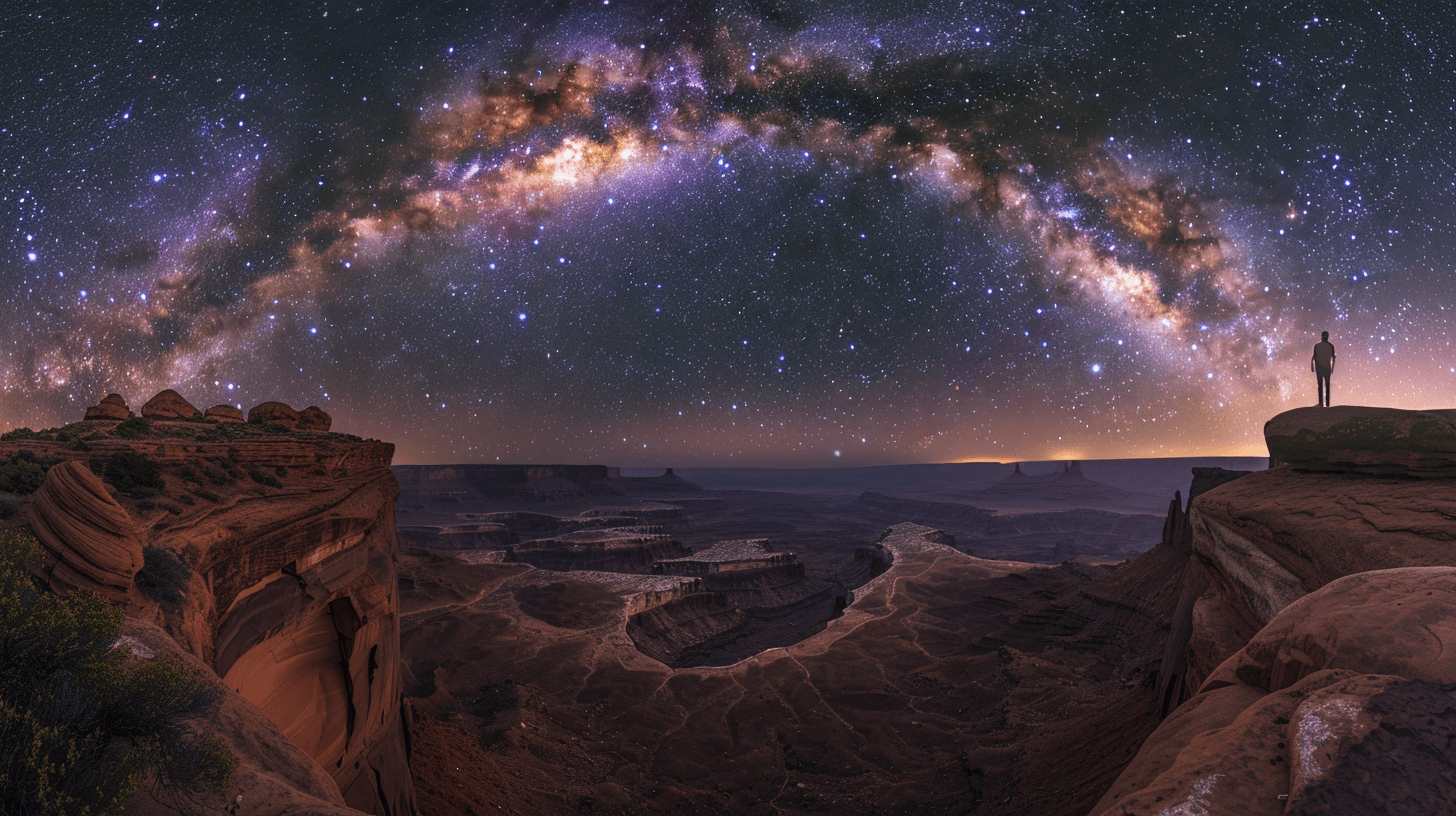
Human beings have always been fascinated by the mysteries of the universe. From ancient stargazers contemplating the night sky to modern scientists exploring the depths of space with advanced telescopes, our place in the universe remains one of the most profound existential questions. Why are we here? What is the meaning of life? How do we fit into the vastness of the cosmos?
These questions do not have easy answers, but they have inspired diverse fields of inquiry: science, philosophy, and spirituality. Each discipline offers its own framework for understanding our role in the universe, contributing valuable perspectives to the ongoing conversation. By examining the universe through these lenses, we not only gain knowledge but also deepen our connection to the mysteries that define our existence.
In this article, we will explore humanity’s place in the universe by deconstructing conventional assumptions and offering new insights. From the latest scientific discoveries in cosmology to philosophical reflections on existence, we will weave together a tapestry of ideas that inspire deeper understanding. Ultimately, the journey to understanding our place in the cosmos is as much about discovering ourselves as it is about exploring the universe.
The Scientific Perspective on Humanity’s Place in the Universe
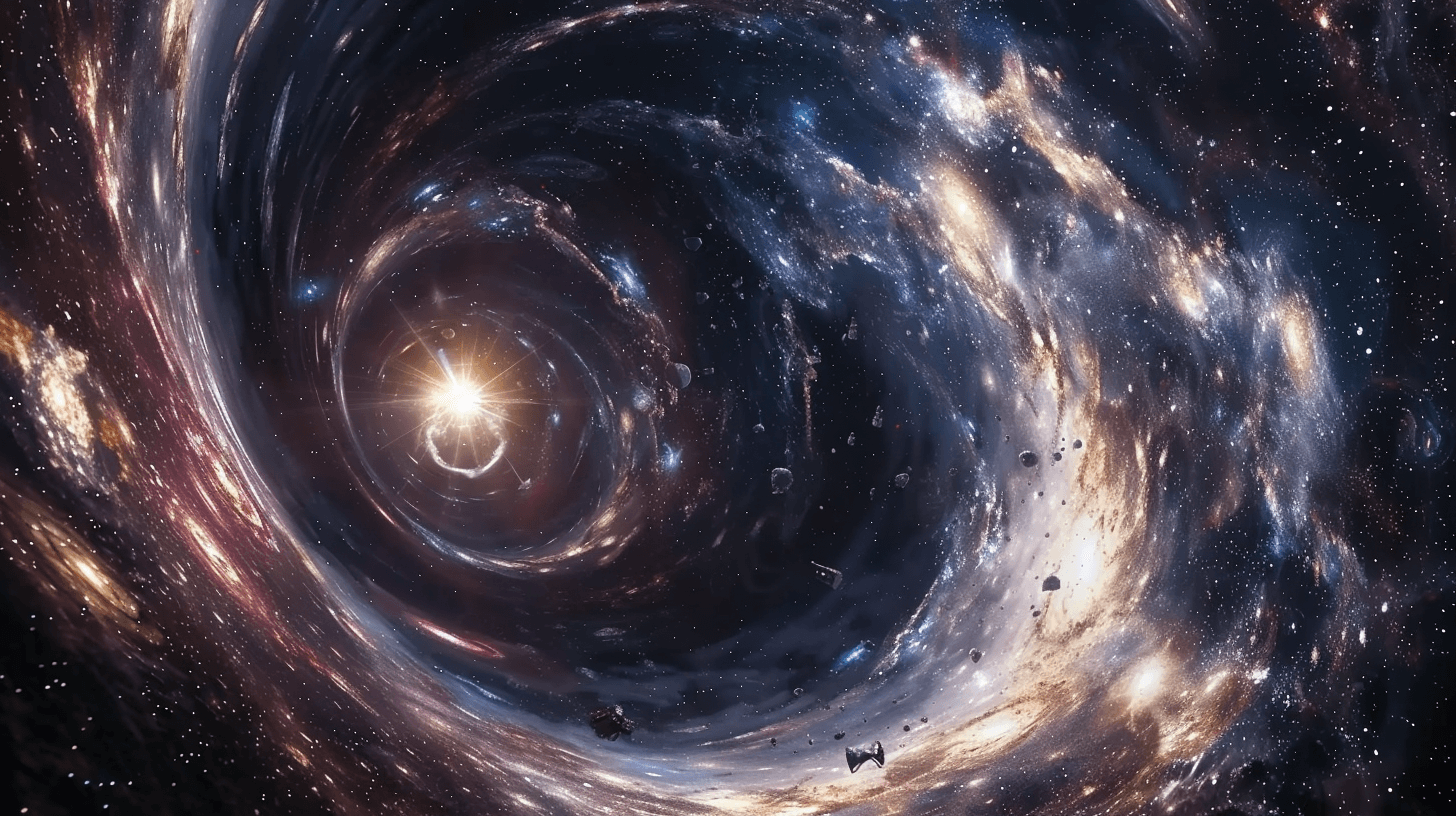
Understanding the Scale of the Universe
The scientific perspective begins by acknowledging the vastness of the universe. Our planet, Earth, is but a speck in a galaxy with over 100 billion stars, which itself is one of hundreds of billions of galaxies in the observable universe. As the famous astronomer Carl Sagan once said, “We are star stuff.” Everything on Earth, including humans, is made from the elements created in the hearts of ancient stars. These stars exploded in supernovae, scattering their elements across the universe and eventually leading to the formation of planets, life, and conscious beings capable of pondering their origins.
The sheer scale of the universe challenges human perceptions of importance. In light of the universe’s magnitude, humanity might seem insignificant. However, this perspective also reveals something extraordinary: despite our small size, we possess the capacity for profound thought, self-awareness, and understanding.
The discovery of the Big Bang—the moment of creation nearly 14 billion years ago—has allowed us to trace the origins of the universe itself. From the formation of galaxies and stars to the birth of solar systems and planets capable of hosting life, cosmology provides a detailed map of the universe’s history. But this map only answers the “how” of the universe’s existence, not the “why,” which brings us to more philosophical inquiries.
Cosmology and the Role of Humanity
While science explains the mechanics of the universe, it also raises existential questions. Are we alone in the cosmos? What is the purpose of conscious life? The search for extraterrestrial life, through programs like SETI (Search for Extraterrestrial Intelligence) and missions exploring planets like Mars and Europa, demonstrates that scientists believe we may not be alone. The discovery of extremophiles—organisms that thrive in extreme conditions on Earth—suggests that life could exist in conditions once thought inhospitable, expanding the possibilities for life elsewhere.
In this context, the Anthropic Principle emerges as a thought-provoking concept. It suggests that the universe’s physical constants are precisely tuned to allow for the existence of life. This principle leads to a philosophical quandary: Is the universe fine-tuned for life, or is our perception biased because we exist in a universe that allows for our existence? Whether this is a coincidence or evidence of a deeper design remains one of the most debated topics in both science and philosophy.
Philosophical Reflections on Our Place in the Universe
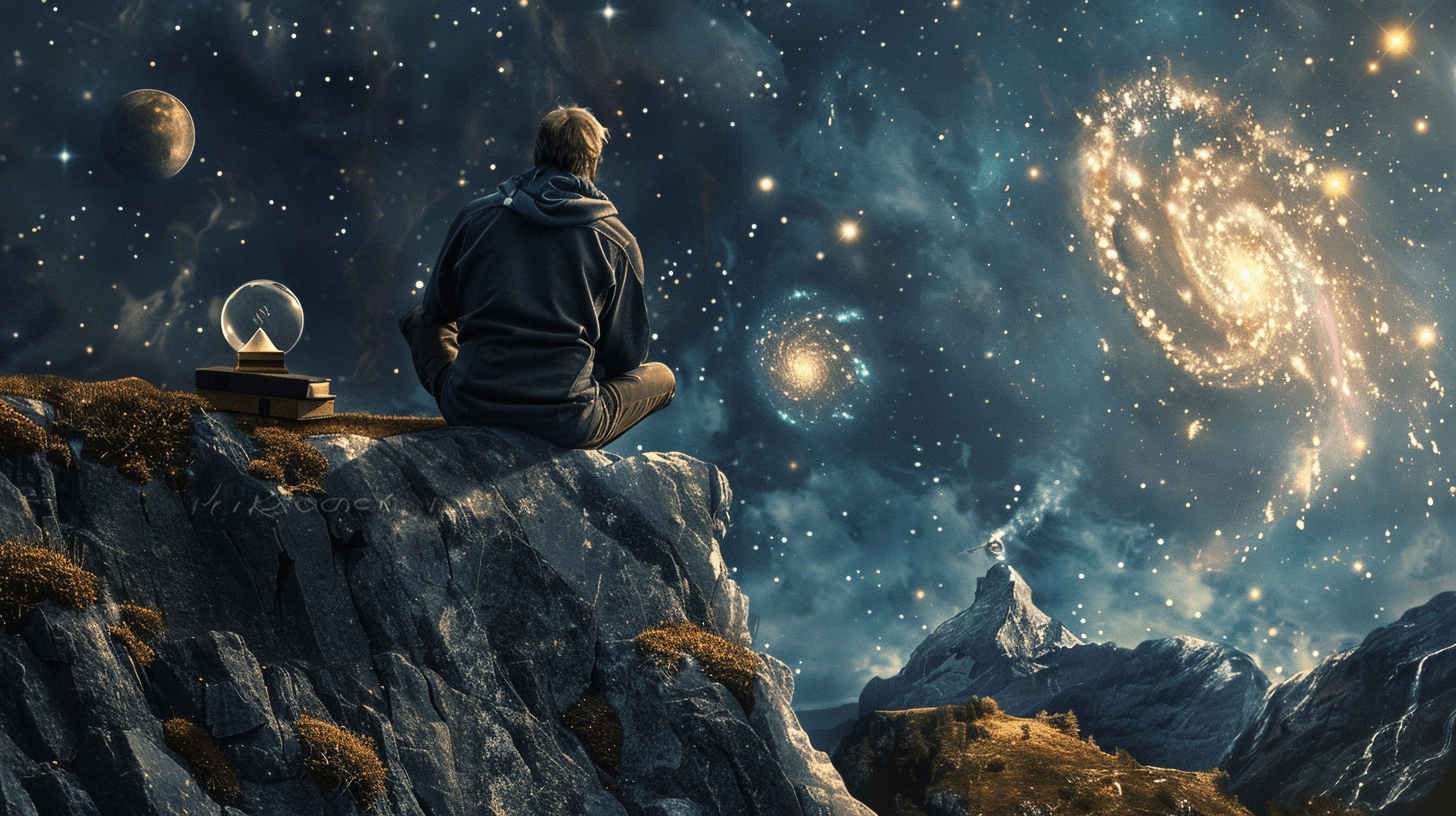
Philosophy asks fundamental questions about existence that transcend the scientific framework. From the existentialist musings of Friedrich Nietzsche and Jean-Paul Sartre to more modern thinkers like Albert Camus, philosophers have grappled with the nature of meaning in a seemingly indifferent universe. If the universe is so vast and we are so small, what significance can our lives possibly hold?
Camus famously described life as “absurd” in his work The Myth of Sisyphus. He argued that the human tendency to search for meaning collides with the “silent” universe that offers none. Yet, instead of despair, Camus suggested that humans must create their own meaning, embrace the absurd, and live with passion and purpose despite the cosmic indifference.
The Search for Meaning in a Cosmic Context
Philosophical reflections on our place in the universe often revolve around the tension between meaninglessness and meaning-making. While some existentialists lean towards nihilism—the belief that life has no inherent meaning—others advocate for constructing personal meaning. Viktor Frankl, a Holocaust survivor and psychiatrist, argued in Man’s Search for Meaning that even in the face of suffering and cosmic indifference, humans can find meaning through love, work, and the experience of beauty.
This philosophy suggests that our smallness in the universe does not diminish our significance. Instead, it invites us to take responsibility for creating meaning in our own lives. Whether through relationships, creative expression, or contributing to society, humans can transcend their physical limitations and find spiritual fulfillment in an expansive, mysterious cosmos.
The Spiritual Dimension of the Cosmos
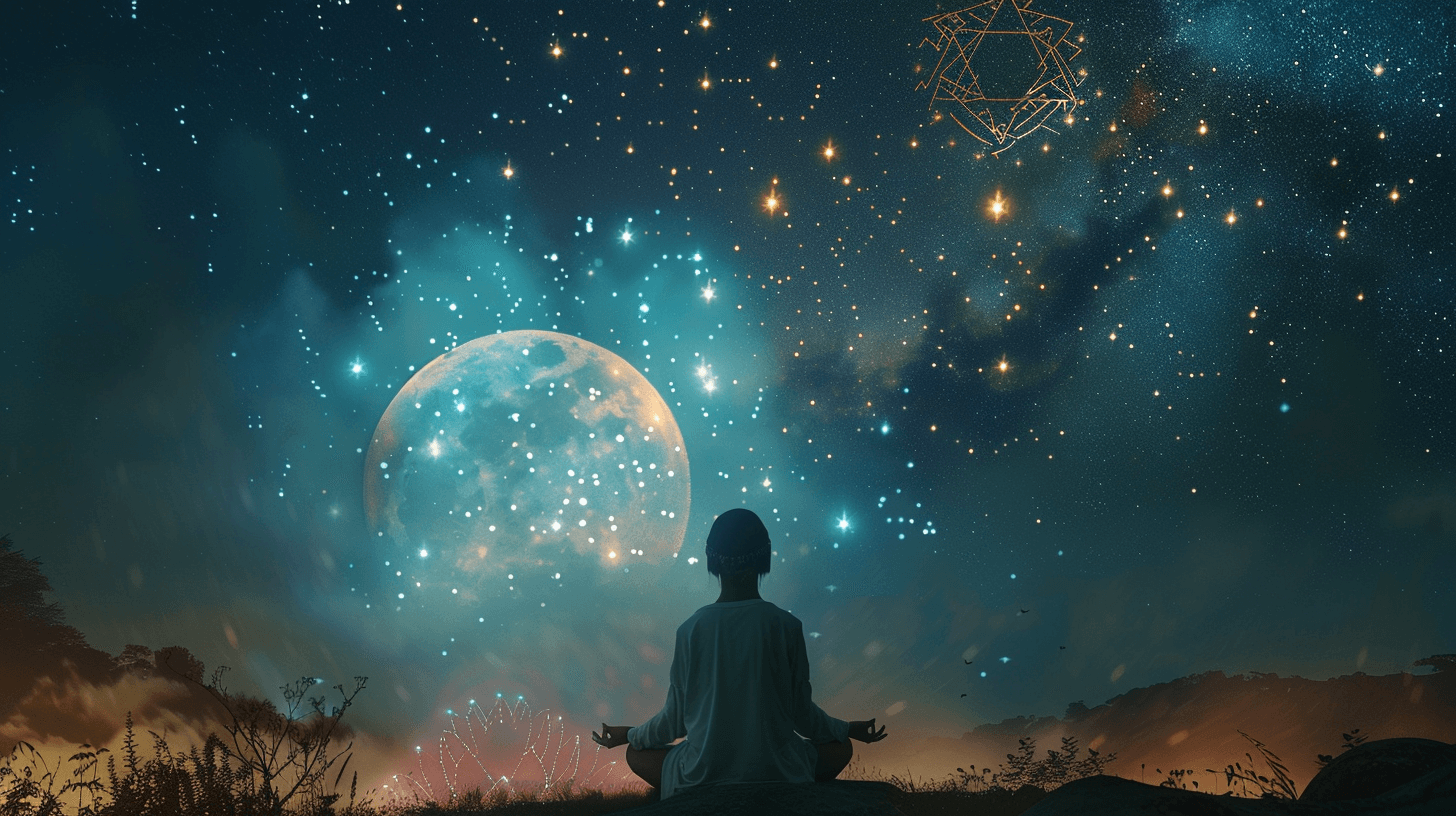
While science and philosophy grapple with the physical and existential aspects of the universe, spirituality offers another lens—one that focuses on the interconnectedness of all things. Eastern traditions, such as Hinduism and Buddhism, emphasize the unity of the self with the universe. In the Bhagavad Gita, for example, Krishna teaches that the soul is eternal and exists beyond the physical body, deeply connected to the divine and the cosmos.
Similarly, Taoism emphasizes harmony with the Tao, the natural flow of the universe. Taoist meditation practices encourage practitioners to merge their consciousness with the cosmos, dissolving the sense of a separate self and experiencing oneness with the universe.
Cosmic Consciousness and Enlightenment
The concept of “cosmic consciousness” is often explored in spiritual traditions as the ultimate state of awareness, where the individual ego dissolves and one becomes fully aware of the unity of all life. Figures like Ramana Maharshi, a modern Indian sage, taught that self-realization comes from the recognition that the self and the universe are one.
For those on a spiritual path, the journey is about awakening to this deeper understanding of existence. Whether through meditation, contemplation, or mystical experiences, individuals seek to transcend the limitations of the ego and experience the universe as a living, conscious whole. This perspective is often described as achieving enlightenment or nirvana in Buddhist and Hindu traditions.
How Science and Spirituality Can Coexist in Understanding the Universe
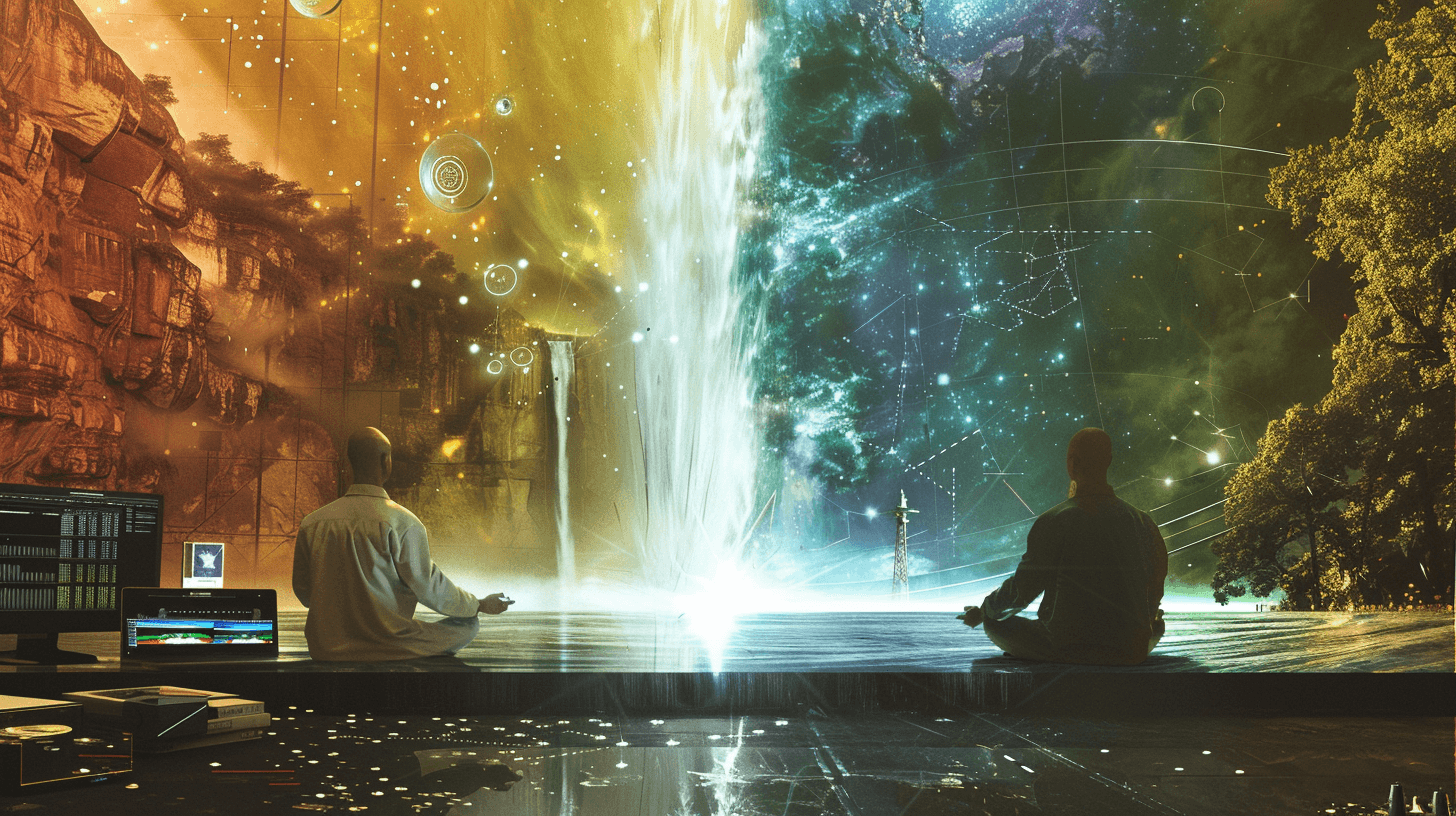
Bridging the Gap Between Science and Spirituality
Historically, science and spirituality have often been seen as opposing forces, with one grounded in empirical observation and the other in metaphysical belief. However, recent thinkers like Fritjof Capra and Brian Swimme have argued that these two ways of understanding the universe can be complementary rather than contradictory. Capra’s book The Tao of Physics explores the parallels between modern quantum physics and Eastern spiritual traditions, suggesting that both realms point toward a deeper unity of all things.
Physicists like Albert Einstein also found wonder and awe in the universe that transcended simple scientific inquiry. Einstein famously said, “The most beautiful thing we can experience is the mysterious. It is the source of all true art and all science.” For him, the study of the universe led to a profound sense of reverence for the underlying mysteries of existence—a feeling that borders on the spiritual.
Transcending Binary Thinking
Modern developments in quantum mechanics, the study of consciousness, and systems theory challenge the idea that the universe is a machine-like entity, functioning solely through predictable laws. Instead, these scientific advances suggest that the universe is deeply interconnected and that consciousness may play a more significant role in its functioning than previously thought. This holistic view aligns with many spiritual perspectives, particularly those that emphasize the interdependence of all life.
To understand our place in the universe, we must move beyond binary thinking that pits science against spirituality. Both approaches offer valuable insights into the nature of existence, and together, they provide a more comprehensive understanding of the cosmos and our role within it.
Key Books That Explore Humanity’s Place in the Universe
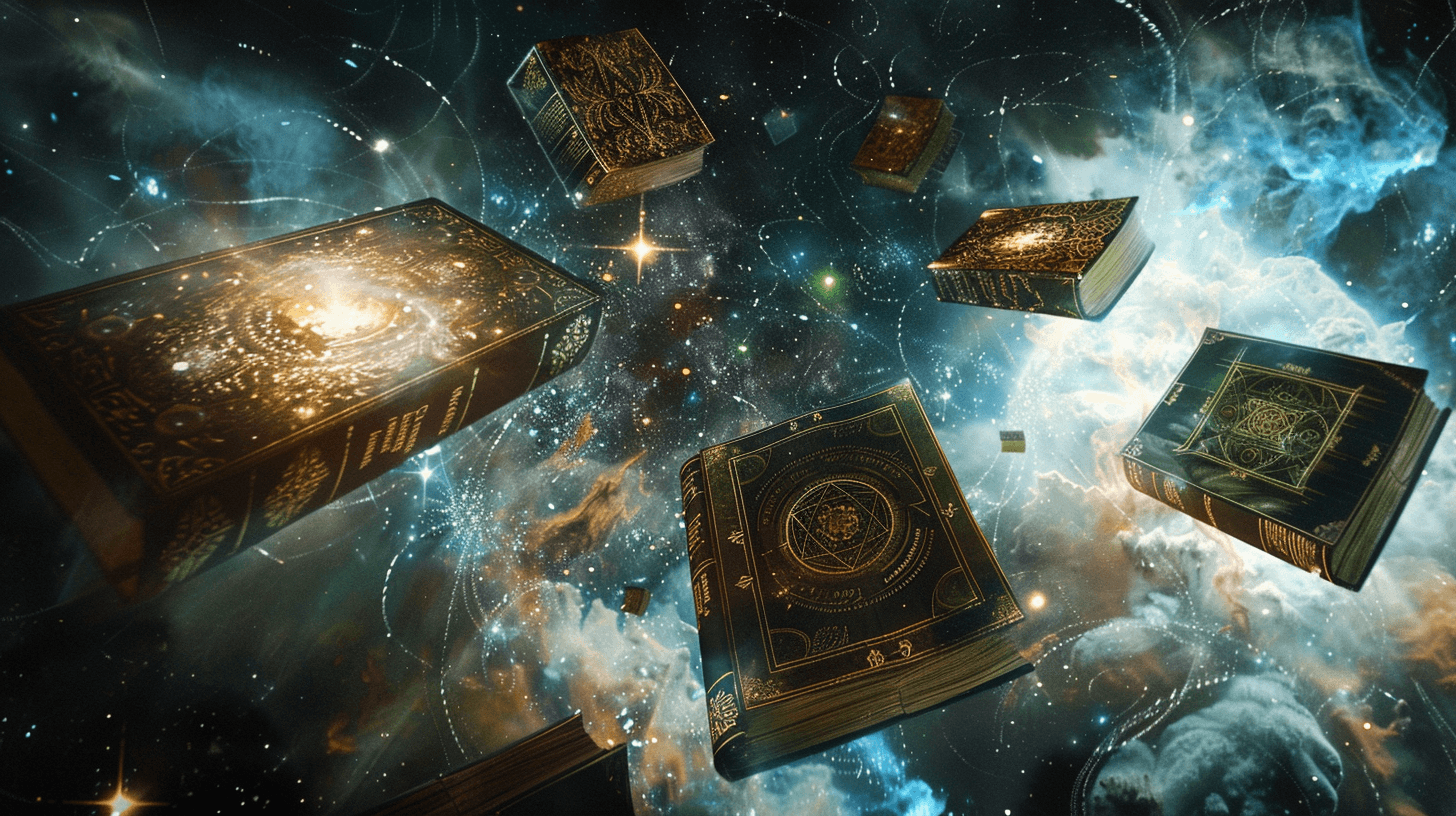
Understanding humanity’s place in the cosmos requires insight from multiple disciplines—science, philosophy, and spirituality. These key books, written by some of the most profound thinkers of their time, offer readers diverse perspectives on the nature of the universe and humanity’s role within it. Whether rooted in the empirical discoveries of modern science, the existential reflections of philosophy, or the timeless wisdom of spiritual traditions, each of these works deepens our understanding of the vastness of existence and our place within it.
A Brief History of Time by Stephen Hawking
Stephen Hawking’s A Brief History of Time is a foundational text for those interested in exploring the scientific understanding of the universe. In this book, Hawking presents complex cosmological concepts—such as the Big Bang, black holes, and the nature of time—in an accessible manner for the layperson. His work shows how humanity fits into the universe from a physical perspective, presenting the idea that while we may be small in the cosmic scale, our capacity to understand the universe’s inner workings is profound. Hawking tackles the concept of determinism and the limits of scientific understanding, raising questions about free will, the nature of reality, and what lies beyond the observable universe. His exploration of time and space, and the interplay between them, offers readers a chance to rethink humanity’s position in relation to the cosmos.
Cosmos by Carl Sagan
Carl Sagan’s Cosmos is a sweeping and poetic account of the universe’s history, blending science with a philosophical reverence for life and existence. Sagan invites readers to marvel at the immensity of the universe while considering the fragile beauty of life on Earth. His book bridges the gap between science and the human desire for meaning, exploring not only how the universe works but also why it matters to us as conscious beings. Sagan’s famous phrase, “We are made of star-stuff,” captures the essence of his message: that humanity is inextricably linked to the universe in both a physical and existential sense. Cosmos also addresses humanity’s potential for both greatness and self-destruction, urging us to cherish and preserve the unique planet we call home.
The Tao of Physics by Fritjof Capra
Fritjof Capra’s The Tao of Physics offers a groundbreaking comparison between modern physics and Eastern mysticism. Capra argues that the discoveries of quantum physics, which defy traditional Newtonian logic, align with the ancient spiritual teachings of Taoism, Buddhism, and Hinduism. He explores the interconnectedness of all things, suggesting that the universe is not a collection of independent objects but a web of dynamic relationships. For readers seeking to reconcile scientific knowledge with spiritual insight, The Tao of Physics is an essential text. Capra’s work emphasizes that science and spirituality are not at odds but are complementary paths to understanding the universe. The book encourages readers to contemplate humanity’s place in the cosmos as part of an interconnected whole, where the boundaries between the observer and the observed, the self and the universe, blur and dissolve.
The Myth of Sisyphus by Albert Camus
In The Myth of Sisyphus, Albert Camus grapples with one of the most profound existential questions: How can we find meaning in a universe that seems indifferent to human existence? Using the Greek myth of Sisyphus—who is condemned to eternally push a boulder up a hill only for it to roll back down—Camus explores the absurdity of life and the search for meaning in a world devoid of inherent purpose. Despite the seeming futility of existence, Camus famously declares that “we must imagine Sisyphus happy,” suggesting that the very act of striving, despite the absurd, is what gives life value. For readers exploring their place in the universe, The Myth of Sisyphus offers a powerful philosophical framework for confronting existential challenges and creating personal meaning in a seemingly indifferent cosmos.
Man’s Search for Meaning by Viktor Frankl
Viktor Frankl’s Man’s Search for Meaning is a deeply personal and philosophical reflection on the human search for purpose, set against the backdrop of his experiences as a Holocaust survivor. Frankl’s development of logotherapy, which posits that finding meaning in life is the primary human drive, provides a psychological and spiritual perspective on humanity’s place in the universe. Unlike Camus, who argues that the universe is absurd, Frankl contends that meaning can always be found—even in the darkest of circumstances. His work resonates with those seeking to understand their role in the universe, especially when faced with suffering or existential doubt. Man’s Search for Meaning is a testament to the resilience of the human spirit and an exploration of how individuals can find purpose, even when the universe appears indifferent.
Autobiography of a Yogi by Paramahansa Yogananda
For those seeking a spiritual perspective on humanity’s place in the universe, Paramahansa Yogananda’s Autobiography of a Yogi is an enlightening read. Yogananda’s life story, which chronicles his journey from India to the West to spread the teachings of Kriya Yoga, is filled with mystical experiences and insights into the nature of divine consciousness. The book explores themes of transcendence, the interconnectedness of all life, and the human potential for enlightenment. Yogananda offers a vision of the universe as not just a physical reality but a spiritual one, where the ultimate goal is self-realization and union with the divine. His teachings offer readers a path to understanding the cosmos not just through intellect, but through meditation, inner experience, and spiritual awakening.
Conclusion: The Journey Toward Understanding
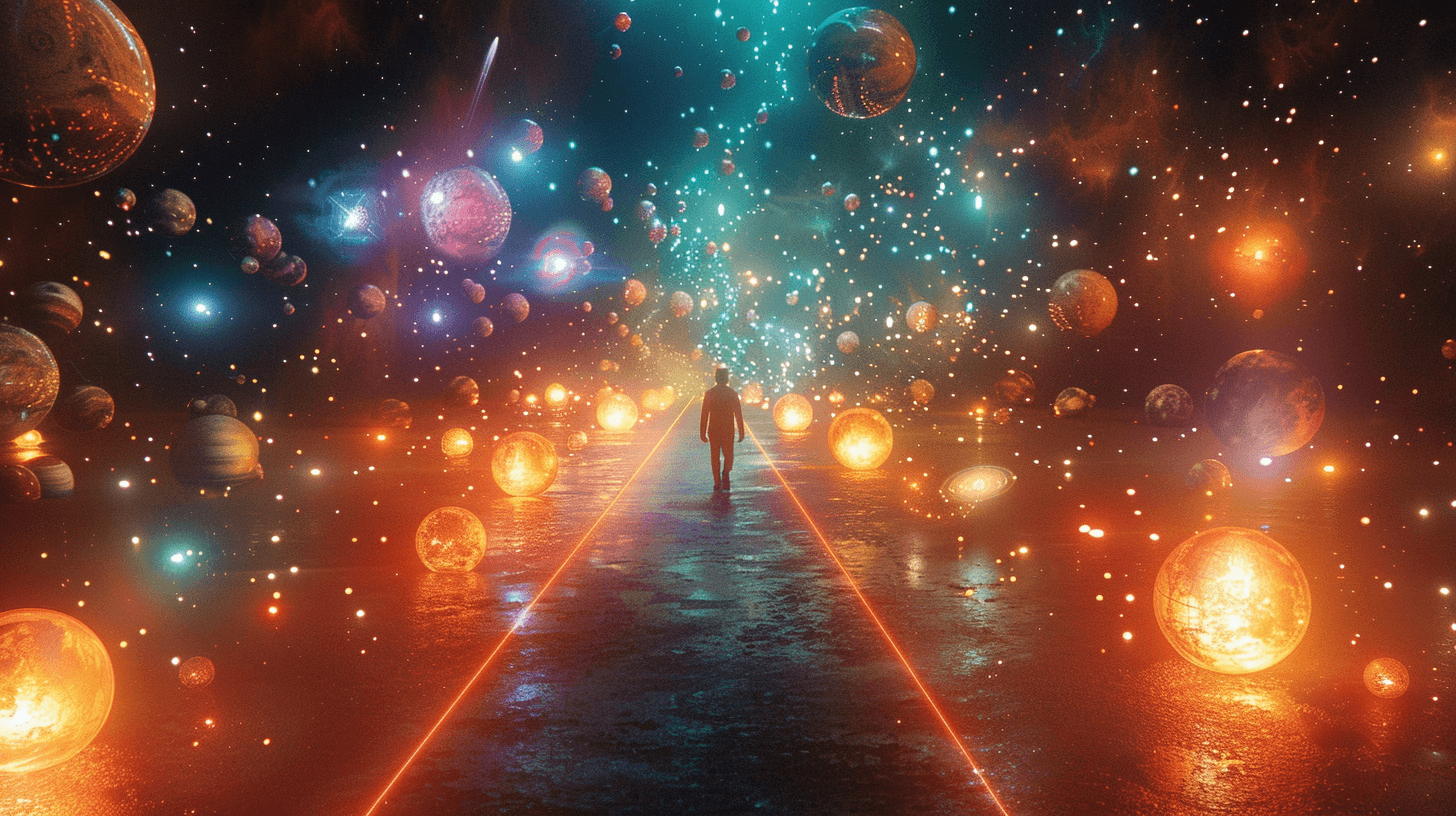
Humanity’s quest to understand its place in the universe is one of the most profound and enduring journeys we have embarked on. The cosmos, with all its vastness and mysteries, has always prompted us to ask the biggest questions: Who are we? Why are we here? What is our connection to the greater whole? These questions have led us down paths of scientific inquiry, philosophical reflection, and spiritual exploration, each offering unique perspectives on our cosmic role.
From a scientific standpoint, we now know more than ever before about the origins of the universe, the structure of galaxies, and the nature of life itself. The discovery of cosmic phenomena like dark matter, black holes, and distant planets continues to push the boundaries of human knowledge, showing us that the universe is far more complex and magnificent than we can fully comprehend. However, science also reminds us of our humility—our place in the cosmos is small but significant. We are not at the center of the universe, but we are a part of its grand narrative.
Philosophically, the enormity of the universe has both challenged and inspired us. Existentialists like Camus and Nietzsche questioned the meaning of life in an indifferent universe, while others like Viktor Frankl found profound purpose even amidst suffering. This search for meaning highlights the tension between humanity’s smallness and the immense capacity for meaning-making, urging us to create purpose within a cosmic framework that doesn’t always offer clear answers.
On a spiritual level, many traditions have long embraced the idea that humanity is deeply interconnected with the cosmos. Whether through the Buddhist concept of oneness, the Hindu understanding of Brahman, or the mystic Christian experience of divine connection, spirituality offers a path to experiencing the universe not just intellectually, but experientially—recognizing that we are both part of the cosmos and reflections of its beauty.
Ultimately, understanding our place in the universe is not about finding one final answer but embracing the journey of discovery itself. Whether through scientific exploration, philosophical reflection, or spiritual awakening, the quest to understand the cosmos is also a quest to understand ourselves. It is a journey that invites us to remain curious, humble, and connected to the greater whole. And as we continue to explore both the outer and inner realms of existence, we find that the more we discover about the universe, the more we discover about our own potential and purpose within it.







